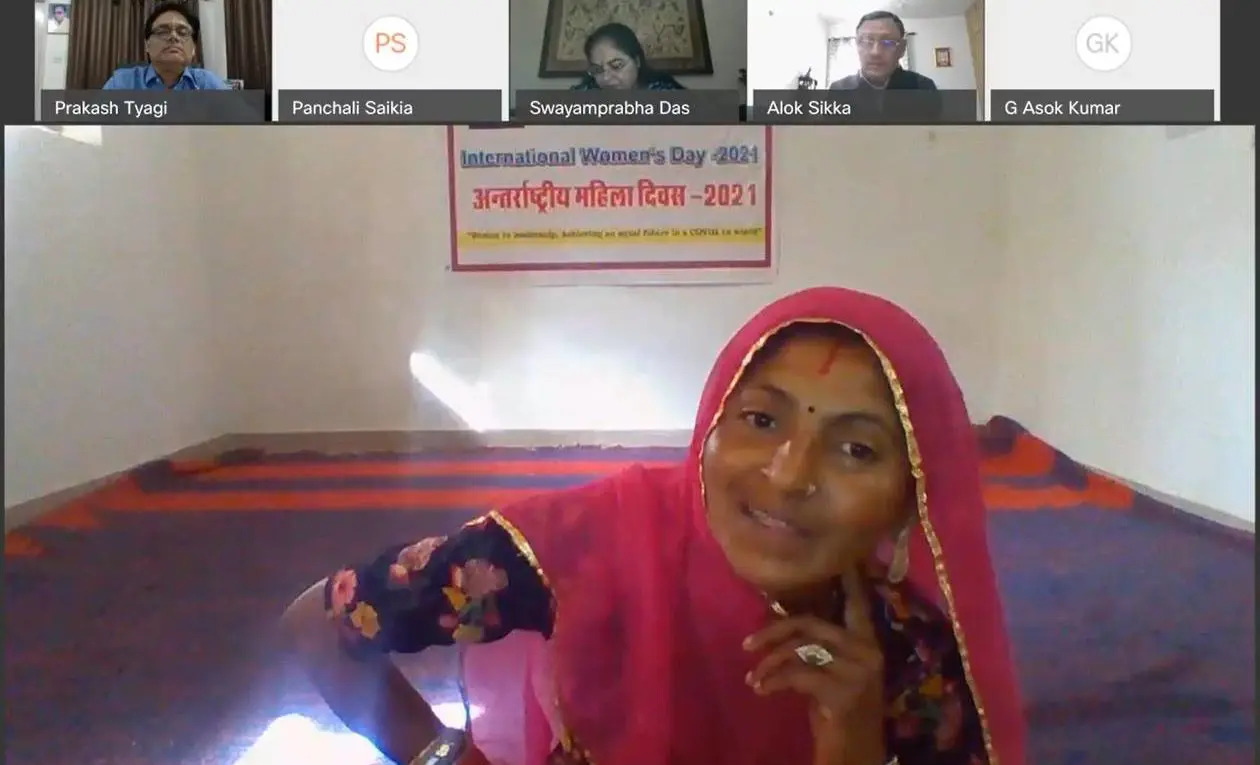Women’s leadership in water governance and management
To mark International Women’s Day on March 8th, WGF participated in and co-led a special webinar with UNDP India highlighting the critical, and often forgotten, role that women play in ensuring sustainable water governance and management.
The webinar featured insightful opening interventions from Ms Shoko Noda, Resident Representative, UNDP and Mr G Asok Kumar, Additional Secretary and Mission Director of the National Water Mission, Ministry of Water, Government of India. A panel with representatives from WGF, World Bank, Hindustani Unilever Foundation and other NGOs followed.
The panel also featured two of the newly recognized Women Water Champions, Ms Naktu Devi and Ms Neetu Singh. The Women Water Champions is an initiative led by UNDP India with support from WGF to highlight women who have made outstanding contributions to sustainable water governance and management in their communities. 41 champions have been selected and will be featured in a compendium to be published later this month.
Faced with water shortages in her village in Rajasthan, Ms Naktu Devi turned to rain-fed agriculture to sustain her farm and family. Learning from her employment of earthen dykes, she took ownership of rainwater harvesting tanks and the renovation of a pond in her village to better serve the community. She also encouraged other women to learn and employ similar measures to take better control of their livelihoods. Ms Devi is recognized for her sustainable drought mitigation approach and overall socio-economic development of the community.
Seeing her flood-prone region of Eastern Uttar Pradesh getting drier and drier every year due to water-intensive agriculture, Ms Neetu Singh realized she could not just sit by and watch. She broke gender barriers and joined People Action for National Integration (PANI) where she trained on farming and water-use practices. She then went on to convince farmers to adopt the System Rice Intensification (SRI) technique, an approach that can increase rice yields by up to 90% while also with up to 50% water savings. She has gone on to mentor several women professionals in other communities and, through the team she leads at PANI, reaches 2,250 women farmers to promote water-saving farming approaches.
Topics discussed in the panel included how gender is being mainstreamed into project and programme design, how to women can be better acknowledged for the roles they play as water stewards, what are the barriers and opportunities to include women in water resources management, and how to enhance women’s skills development, employment and entrepreneurship opportunities.
Panellists included:
Ms. Kanika Groeneweg -Thakar, Gender Focal Point, UNDP-SIWI Water Governance Facility
Ms. Kavita Sachwani, State Coordinator, 2030 WRG, World Bank
Dr. Prakash Tyagi, Executive Director, GRAVIS
Ms. Reshma Anand, Chief Executive Officer, Hindustan Unilever Foundation
Ms.Kalpana Ramesh, Founder, The Rainwater Project and Lead, Water Initiatives, SAHE
The session was moderated by Dr Alok Sikka, IWMI
Closing remarks were also provided by Dr Marianne Kjéllen, Global Policy Advisor, Water Governance, UNDP.
The full recording of the webinar can be viewed here: Watch Webinar
A discussion paper summarizing the key points raised in the webinar is expected to be published later this month.








